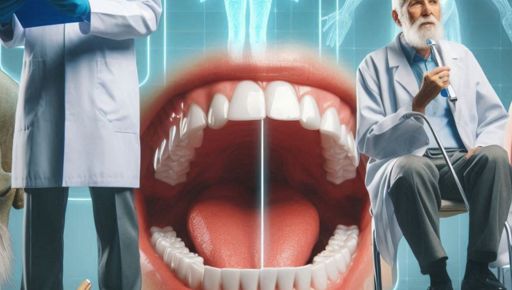As you age, your oral health undergoes significant changes that can impact your overall quality of life. Currently, individuals are living longer, healthier lives, but still face unique oral health challenges. Our experienced dentist in Easton, MA, recognizes the importance of addressing these changes to ensure optimal oral health and well-being. From dry mouth and gum recession to tooth wear and periodontal disease, aging adults require specialized care to prevent and manage oral health issues.
By understanding the complex relationships between aging, oral health, and systemic well-being, dentists are dedicated to providing compassionate, comprehensive care to help older adults maintain a healthy, beautiful smile.
Understanding The Physiological Changes and Oral Health
As we age, our bodies undergo various physiological changes that affect our oral health. These changes can increase the risk of oral health issues, making it essential to understand and address them.
Physiological Changes
- Reduced Saliva Production (Xerostomia): Decreased saliva flow leads to dry mouth, increasing the risk of tooth decay and gum disease.
- Gum Recession: Exposed roots make teeth more susceptible to decay and sensitivity.
- Tooth Wear: Erosion and attrition lead to tooth loss and altered bite.
- Periodontal Disease: Increased risk of gum disease due to decreased immune function.
- Changes in Taste and Smell: Reduced sensitivity to sweet, sour, salty, and bitter tastes.
- Decreased Immune Function: A weakened immune system makes it harder to fight infections.
- Hormonal Changes: Fluctuations in estrogen and progesterone levels affect oral health.
- Bone Loss: Osteoporosis and bone loss affect jawbone density.
Oral Health Implications
- Tooth Decay: Increased risk due to dry mouth and decreased saliva flow.
- Gum Disease: Increased risk due to gum recession and decreased immune function.
- Oral Cancer: Increased risk with age.
- Dental Caries: Root and coronal caries are more prevalent in older adults.
- Denture-Related Issues: Changes in jawbone density affect denture fit.
Exploring The Systemic Health Connections
Oral health is intricately linked to systemic health:
- Diabetes: Uncontrolled diabetes increases the risk of periodontal disease.
- Cardiovascular Disease: Periodontal disease linked to increased cardiovascular risk.
- Dementia: Oral health issues may contribute to cognitive decline.
- Nutritional Deficiencies: Poor oral health impacts nutrient intake and overall health.
- Medications: Certain medications can exacerbate dry mouth and other oral health issues.
Strategies to Prevent And Manage Oral Diseases As You Age
As we age, our oral health needs change. Preventing and managing oral diseases requires a proactive approach. Here are effective strategies to maintain optimal oral health:
Prevention Strategies
- Regular Dental Check-Ups: Schedule every 3-6 months.
- Oral Hygiene Instruction: Brush and floss correctly.
- Fluoride Varnishes: Apply fluoride to prevent tooth decay.
- Dental Sealants: Protect teeth from decay.
- Healthy Diet: Limit sugary and acidic foods.
Managing Dry Mouth (Xerostomia)
- Saliva Substitutes: Use artificial saliva.
- Oral Moisturizers: Hydrate the mouth.
- Medication Review: Identify dry mouth-causing medications.
- Water Intake: Drink plenty of water.
Gum Disease Management
- Periodontal Evaluations: Regular gum assessments.
- Scaling and Root Planing: Remove plaque and tartar.
- Antibacterial Therapy: Manage periodontal infections.
- Gum Recession Treatment: Surgical or non-surgical options.
Tooth Decay Prevention
- Fluoride Toothpaste: Use fluoride-rich toothpaste.
- Dental Fillings: Restore decayed teeth.
- Dental Crowns: Protect weakened teeth.
- Tooth Replacement: Consider implants or bridges.
Oral Cancer Screening
- Visual Examinations: Regular screenings.
- Biopsy and Referral: When suspicious lesions are detected.
Additional Tips
- Smoking Cessation: Quit smoking to reduce oral cancer risk.
- Limit Alcohol: Reduce the risk of oral cancer and other oral health issues.
- Dental Implants: Consider implants for tooth replacement.
- Oral Appliance Therapy: Manage sleep apnea and bruxism.
Keynote
Aging has a profound impact on oral health, requiring specialized care and attention. By understanding the physiological, systemic, and social factors at play, dental professionals can develop effective strategies to promote healthy aging, improve quality of life, and enhance dignity for older adults.



